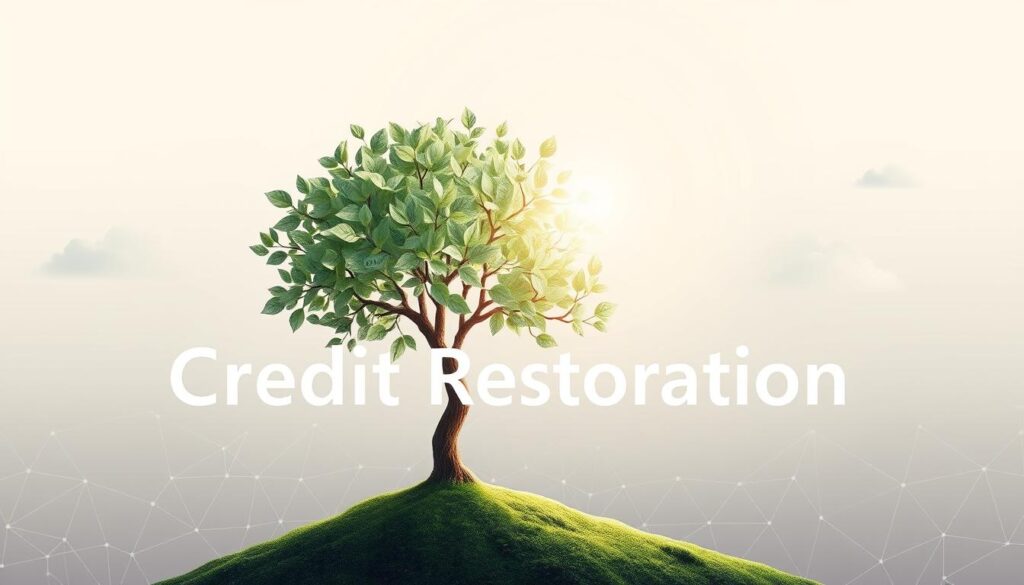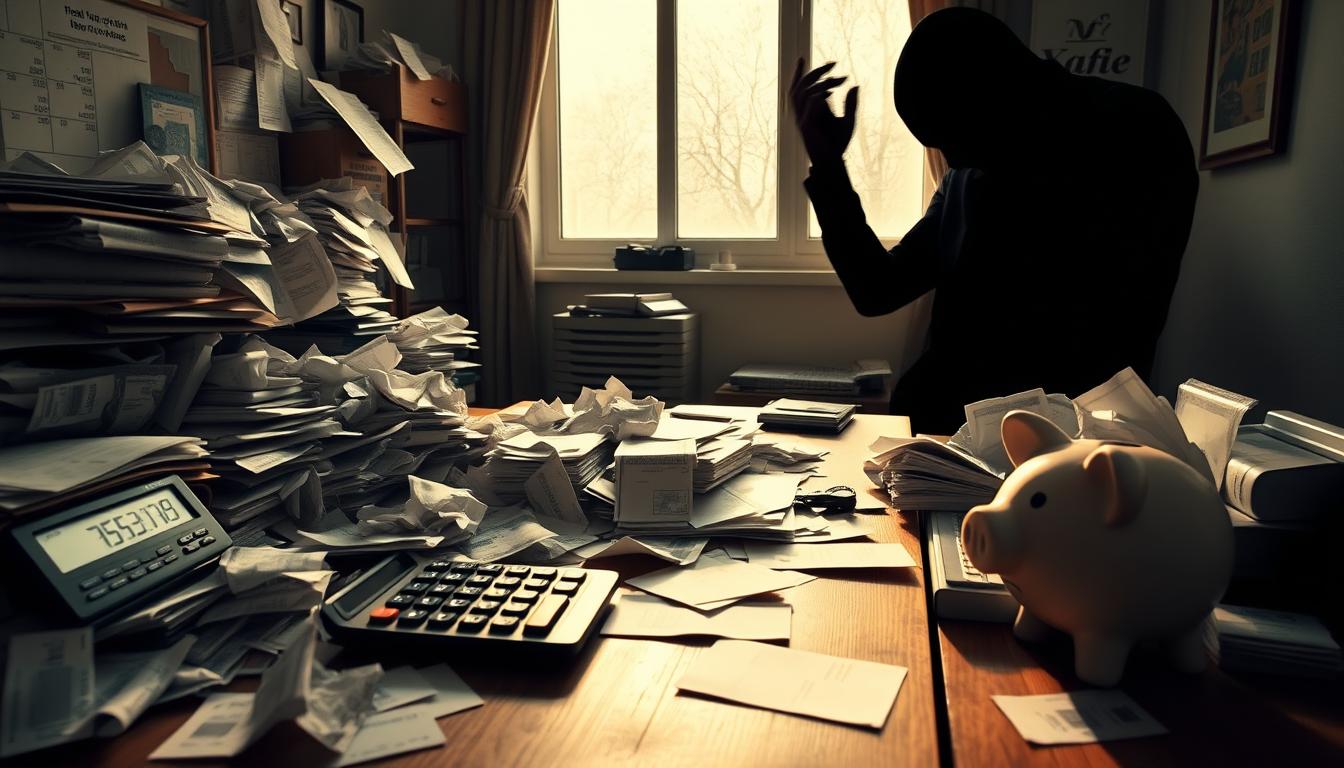Knowing how to fix your credit score is key to your financial health. This credit repair 101 guide will show you how to boost your credit score by yourself. You can fix errors on your credit report and handle your debts well. This way, you can improve your financial situation without needing a professional.
Places like the Federal Trade Commission offer great advice. They say you have the power to manage your credit on your own.
Key Takeaways
- Understanding credit scores is crucial for managing your finances.
- You can improve your credit on your own with targeted actions.
- Managing inaccuracies is a key aspect of DIY credit repair.
- Good financial habits foster long-term credit score improvement.
- Leverage resources from trusted organizations for effective strategies.
Understanding Your Credit Score
Your credit score shows how good you are with money. It helps you get loans, credit cards, and good interest rates. Scores range from 300 to 850, with higher numbers meaning you’re less risky to lenders. You can make your score better by knowing what it’s based on and how to improve it.
What is a Credit Score?
A credit score is a number based on your past with money. It shows if you’re likely to pay back what you borrow. Lenders look at this score to decide if they should give you credit. Taking care of your credit can help you get a better score.
How Credit Scores are Calculated
Many things go into your credit score. Knowing these can help you improve your score:
- Payment History: This is 35% of your score. Paying on time helps a lot.
- Credit Utilization Ratio: This is 30% of your score. It’s how much debt you have compared to your credit limit. Try to keep it under 30%.
- Length of Credit History: This is 15% of your score. Having credit for a long time is good.
- Types of Credit in Use: This is 10% of your score. Having different kinds of credit can help.
- Recent Credit Inquiries: This is 10% of your score. Too many inquiries in a short time can hurt your score.
Many lenders use the FICO scoring model. Knowing about it can help you improve your score.
The Importance of Credit Repair
Knowing how credit repair works is key to your financial future. A good credit score can open many doors. It can make your life better in many ways.
As you move through the financial world, knowing these benefits is important. It can push you to work on keeping and improving your credit score.
Benefits of a Good Credit Score
A good credit score brings many benefits. These are important for your money health. Here are some of the main advantages:
- Lower interest rates on loans, which saves you money over time.
- Increased chances of mortgage approval, allowing you to secure your dream home.
- Better rates on auto insurance, leading to lower monthly premiums.
- More favorable terms on credit cards, making it easier to manage expenses.
Consequences of Bad Credit
Poor credit can have serious effects. It can block your financial goals. Knowing these effects shows why fixing your credit is crucial:
- Higher interest rates on loans, which can lead to significant extra costs.
- Increased likelihood of credit application denials, limiting your purchasing power.
- Complications when seeking housing, as landlords often check credit histories.
- Challenges in securing employment, as some employers review credit reports as part of their hiring process.

Credit Repair 101: How to Fix Your Credit Score on Your Own
To start fixing your bad credit, you need to know where you are. This first step is key to improving your score. Here are some steps to help you get started.
Steps to Assess Your Current Credit Situation
First, get your free credit reports from Experian, TransUnion, and Equifax. Look at each report carefully. This will help you find what needs fixing.
Look at things like:
- Account status
- Payment history
- Credit utilization ratio
These are important for fixing your credit. Keep an eye on them to see how you’re doing.
Gathering Necessary Documents and Information
Next, collect important documents. They help prove who you are and clear up your credit history. You’ll need:
- Government-issued photo ID
- Social Security Number
- Recent bank statements
- Letters from lenders or collection agencies
Having these documents ready helps you fix any mistakes in your reports. Being thorough at the start is very important.

Common Credit Issues and Solutions
Late payments and charge-offs can hurt your credit score a lot. Knowing how to fix these problems can really help your credit.
Late Payments and Their Impact
Late payments happen when you miss bill due dates. This can lead to high interest rates and lower your credit score. Just one late payment can hurt your ability to get loans later.
To avoid late payments, try these credit score tips:
- Set up automatic payments to ensure bills are paid on time.
- Use reminders and alerts on your phone or calendar.
- Maintain a budget to manage expenses effectively.
Managing Charge-offs and Collections
Charge-offs happen when you don’t pay a debt, and the creditor writes it off. This can really hurt your credit score. But, you can work with creditors to fix this.
Here are ways to handle charge-offs:
- Contacting creditors to negotiate a lower payment amount.
- Requesting a payment plan to settle the debt over time.
- Reviewing debt validation rights to ensure the charge-off is legitimate.
| Issue | Impact on Credit Score | Possible Solutions |
|---|---|---|
| Late Payments | Can decrease score by 100+ points | Automatic payments, reminders |
| Charge-offs | Significantly lowers score | Negotiate debt, payment plans |
Fixing these common problems is key to a better credit score. It helps avoid more financial trouble.
Credit Repair Strategies You Can Use
Using good credit repair strategies can really help your money situation. You can fix errors on your credit report and open new credit accounts. These steps can help you get a better credit score.
Disputing Errors on Your Credit Report
Fixing mistakes on your credit report is very important. Check your report often to find errors that can hurt your score. To dispute errors, collect proof and send it to the credit bureaus.
They must look into your claim. Fixing mistakes can make your credit score better.
Establishing New Credit Accounts
Opening new credit accounts is also a good way to improve your credit. It shows you can handle loans well. Just remember to keep your balances low and pay on time.
This good behavior will show up on your credit report. It will help your score over time.
How to Improve Your Credit Score Over Time
Improving your credit score takes time and effort. You need a plan and to stick to it. Setting goals and good habits can really help.
Setting and Achieving Credit Goals
To improve credit score, start with clear goals. Here are some examples:
- Reduce existing debt by 20% in six months.
- Make all payments on time from now on.
- Keep your credit card use under 30% always.
These goals give you a clear path. Watching your progress helps you stay on track. It keeps you focused on your credit goals.
Maintaining Good Financial Habits
Good habits are key to success. Maintaining good financial habits means:
- Creating a budget each month.
- Checking your credit report every three months.
- Using resources from the Consumer Financial Protection Bureau.
These habits make your credit stronger. They also help you financially. As you keep improving, your credit score will too.
| Credit Goal | Action Steps | Target Completion |
|---|---|---|
| Reduce Debt by 20% | Prioritize high-interest debts, create a repayment plan | 6 months |
| 100% On-Time Payments | Set up automatic bill payments, reminders | Ongoing |
| Credit Utilization Below 30% | Monitor credit card balances monthly, limit new credit inquiries | Ongoing |
Conclusion
Starting your credit repair journey can really help your finances. It’s easy to improve your credit score with the right steps. You’ve learned how important it is to know your score and fix problems.
DIY credit repair takes time and effort. The steps we talked about help you manage your credit. Every step you take today helps your credit score grow.
Keep up the good work to keep your credit score high. By following what you’ve learned, you’re on the path to better credit. This opens doors to more opportunities in the future. Learn how to fix your credit yourself and what your score soar!













